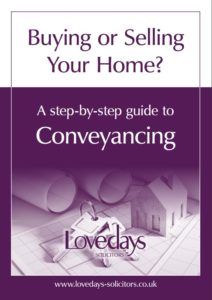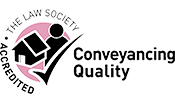- You & Your Family
- Your Job
- Family Law
- Divorce and Separation
- Finances on Divorce
- Dissolution of Civil Partnership
- Separation
- Cohabitation Agreements
- Finances on Breakdown of Cohabitation Relationship
- Prenuptial Agreements
- Grandparents' Rights
- Step-Parents' Rights
- Child Maintenance
- Parental Responsibility
- Paternity Disputes
- Buying Property Jointly
- Probate
- Wills
- Your Property
- Conveyancing
- Partnerships
- Disputes
- Boundary Disputes
- Dealing with Rent Arrears
- Japanese Knotweed Claims
- Landlord and Tenant Disputes
- Landlord Harassment & Illegal Eviction
- Negligence Claims Against Builders & Developers
- New Build Property Disputes
- Noisy Neighbour Disputes
- Personal Debt Collection
- Property Misrepresentations Claims
- Rights of Way Disputes
- Section 21 No Fault Evictions
- TOLOTA Claims
- Tree & Hedge Neighbour Disputes
- Your Business
- About Us
Child Maintenance: Advice and Support
When a relationship ends there can be many things that need to be agreed, but if there are children involved, one of the most important aspects is how they will be supported in the future.
This means that child maintenance will need to be put in place so that one parent can financially support the other in relation to the living costs of the child. This means that the needs of the child are always taken care of, irrespective of the relationship that the parents have with one another and can ensure that both parents are still taking responsibility for their child.
It can therefore be important to understand your legal obligations where child maintenance is concerned and what your rights are throughout the process, and so seeking professional legal advice from experts such as those at Lovedays Solicitors is essential.
What Is Child Maintenance?
Just because a relationship between two people ends, it does not mean that their responsibilities for any children from that relationship ends. Bringing up a child can be an expensive business, and so child maintenance exists in order to ensure that the parent who is not living with the child still contributes to their living costs to ensure that they have a good quality of life. This is a financial arrangement that is required to be made if the child is under the age of 16, or if they are under 20 and still in full time education.
The intention of child maintenance is to ensure that the cost of caring for a child is shared between both parents, and it does not matter whether both parents have contact with the child or not. Child maintenance payments can be arranged privately between both parents or through the Child Maintenance Service (CMS) and will not affect any benefits that you or your children are in receipt of. What costs child maintenance is actually meant to cover remains quite vague, and so the Child Maintenance Service will usually make the decision of how much the parent who does not live with the child is required to pay based on their income rather than a breakdown of living costs.
If the custody of a child is shared, then the amount of child maintenance that needs to be paid is reduced depending on how much time they spend with each parent.
{quote}
How to Arrange Child Maintenance
It is possible to arrange child maintenance either privately between yourselves or through the Child Maintenance Service (CMS). To arrange child maintenance privately, it is important that both parents agree. This could take the form of a regular agreed payment, or with one parent taking care of things such as school trips, uniforms or other large expenses.
The benefit of this is that it can allow you to be flexible but requires you both to have a constructive relationship and good lines of communication. If you opt for a family-based arrangement, it is important that you put the agreement in writing, so it is very clear what each person’s responsibilities are. By applying to turn this into a consent order, it may be possible to make it legally binding.
Alternatively, you can opt to go through the Child Maintenance Service. If you have experienced domestic abuse, then the CMS are able to collect and make payments on your behalf without the consent of an abusive ex-partner.
The Child Maintenance Service will gather information from both parents, including their National Insurance Number, bank account details, the name and date of birth of the child, the number of nights per week that the child spends with each parent and the full names of both parents. They will also need enough information to be able to identify and find the other parent, such as an address.
This information will then be used to calculate how much is owed by the paying parent and will put together a payment schedule showing when the paying parent will need to make their payments. The CMS assessment will also include the amount of maintenance that should have been paid since the application to them was made.
Calculating Child Maintenance
When it comes to calculating how much child maintenance is due, the Child Maintenance Service tend to base their decisions on the income of the paying parent, including a State Pension, any benefits that they receive and the number of children that are involved. They will also look at any shared care arrangements, as the number of nights that the child spends with each parent will affect the payments.
The CMS will look at the income of the paying parent based on information supplied by HMRC and will check whether they are in receipt of any benefits. Once this has been established, they will then look at any other things which could change the gross income amount such as pension payments or the support of children from other relationships. The yearly gross income is converted into a weekly figure and a number of rates will be applied to find out how much child maintenance is owed.
If it is unknown what the paying parent’s income is, then they will be required to pay £38 for one child, £51 for two children or £64 for three or more children per week. If their weekly income is below £7 then they will not be required to make any financial contributions, but for those earning between £7 and £100 per week, they will be asked to pay £7 per week in child maintenance. Those earning between £100.01 and £199.99, or between £200 to £3000 per week will be calculated using a formula. If their gross weekly income is more than £3000 then the receiving parent can apply to the courts for extra child maintenance.
In the case of shared custody, there can be some reductions to the payments that are made. If a child spends between 52 and 103 nights per year with the paying parent, then their contributions will be reduced by one seventh. Two sevenths are deducted if they reside with the paying parent between 104 and 155 nights per year, and three sevenths are deducted if they are with the parent for 156 to 174 nights a year. The payments for a child who spends 175 nights or more with the paying parent will be halved, plus an extra £7 per week reduction for each child in this band.
{quote}
Cases for Variation of Maintenance Through Child Maintenance Services
The Paying Parent
If you are the paying parent you can apply to the CMS to take into account when Special expenses which you have to payout. This could take into account:
- The costs of fuel, train or bus fares and overnight accommodation if a return journey is not practical for seeing a child.
- Debts that were run up whilst you and your partner were together.
- Additional costs of looking after a disabled child in your household.
- Boarding school fees.
- Some of the payment of mortgage, loan or insurance policy on the property where your child lives.
The Parent Getting Maintenance
If you are the parent receiving maintenance you might ask the CMS to take into account additional income in the paying party’s hands. This could take into account:
- Unearned income which the paying party receives such as from rental income, interest on saving and investments.
- Diverted income which the paying party is giving to someone else.
- Diverted income is diverted by way of failing to take dividends from a company.
- Diverting income diverted by making excessive pension contributions.
- Any additional earned income for example by one-off jobs.
If you believe that there are grounds under one of the above, then you can apply for a variation as the paying party to pay less or as the receiving party to get more.
Legal Issues and Disputes
If a parent refuses to pay their child maintenance, then there can be a number of courses of action. If you have decided to use the CMS Collect and Pay service and they are unable to collect the funds, they will start enforcement action within a week unless the full amount is paid.
The CMS can also request that an employer deducts the money from the paying parent’s earnings through a deduction from earnings order, or they can ask the relevant bank or building society to take the money form the account. All of this can be done without the permission of the paying parent and without the need for a court order.
If child maintenance remains unpaid, then the CMS can take the paying parent to court to request a liability order which then allows them to take legal action.
If you have a privately agreed arrangement and the paying parent has not paid the agreed amount, then it can be referred to the CMS if the arrangement was made legal binding through a consent order and is at least 12 months old.
This will allow them to collect ongoing maintenance, but they cannot recoup any arrears. However, you may be able to approach the court to enforce the consent order and recover the debt.
How Lovedays Solicitors Can Assist
When a relationship breaks down it can be a very challenging time for everyone involved, and there are a lot of things that need to be arranged. Getting child maintenance in order is very important as it can ensure that the needs of the child are protected from the start, and that both parents share the burden of the financial responsibility.
There can be a lot to work out, and the experts here at Lovedays Solicitors are here guide you through the process. Whether it is advice on your rights and responsibilities, the negotiation of private child maintenance arrangements or dealing with disputes, our expertise and knowledge can help to make the situation much easier.
Our team have vast experience in the world of family law, meaning that we are the ideal people to help you through your situation. We can advise you, draft agreements and represent you in legal proceedings, all with professionalism and sensitivity at every step of the way.
{quote}
Frequently Asked Questions
Child maintenance is usually paid weekly or monthly. Private agreements offer flexibility, while the CMS provides a schedule based on your preference.
Usually, the Child Maintenance Service (CMS) cannot backdate a claim to before the date the application was made. Maintenance only starts from when they contact the paying parent.
When the CMS calculates the child maintenance payments, they can be paid directly from one parent to another, rather than through the CMS, as paying parents who use the Collect and Pay service are required to pay a collection fee of 20% of the payment on top of the regular child maintenance, whilst receiving parents will have 4% deducted from their payment.
If your ex-partner remarries or is living with a new partner, the paying parent is still required to pay child maintenance towards their own child.
Child maintenance is designed to cover a child's everyday living costs. In the UK, the law assumes that these regular payments contribute to the basic essentials required to raise a child in a safe and stable environment.
In the UK, the legal requirement to pay child maintenance usually stops when the child reaches 16 years old. However, this is extended to 20 years old if the child remains in "approved" full-time, non-advanced education.
There is no fixed "average" payment in the UK because child maintenance is calculated as a percentage of the paying parent’s gross weekly income. The Child Maintenance Service (CMS) uses a specific set of rates to determine the amount:
- 1 Child: 12% of gross weekly income.
- 2 Children: 16% of gross weekly income.
- 3 or more Children: 19% of gross weekly income.
Dealing with Joanne at Lovedays Family department was always a positive experience. She made sure I fully understood my legal situation and her communication style, always so clear and concise, helped me navigate my way through a difficult time.
Get Support Today
If you are facing the complexities of arranging child maintenance or dealing with disputes following a relationship breakdown, don't navigate these challenges alone. Lovedays Solicitors is here to provide expert guidance and support, ensuring that the best interests of your child are upheld.
Our dedicated team is ready to assist you with personalised advice, negotiation of private arrangements, and representation in legal proceedings. Contact Lovedays Solicitors today to secure the professional help you need and take the first step towards a more secure future for your child. Reach out to us now and let us help you find the best solutions for your family.

Free Guide
If you don’t know your leasehold from your freehold, then get our Free Conveyancing Guide. It contains details about the steps you will need to take with any property transactions. The Guide giving you detailed guidance on what your lawyer will be doing for you and what to look out for.


Lovedays Solicitors, Brooke-Taylors Solicitors, Potter and Co Solicitors and Andrew Macbeth Cash and Co Solicitors are the trading names of Derbyshire Legal Services Limited which is a company registered in England and Wales under company number 08838592. Registered office Sherwood House, 1 Snitterton Road, Matlock, Derbyshire, DE4 3LZ.
Authorised and Regulated by the Solicitors Regulation Authority under SRA ID number 637916.
-
01629 56660
-
This email address is being protected from spambots. You need JavaScript enabled to view it. -
Sherwood House
1 Snitterton Road
Matlock
Derbyshire
DE4 3LZ
© Copyright 2019 Derbyshire Legal Services Limited | Website by WebWorks